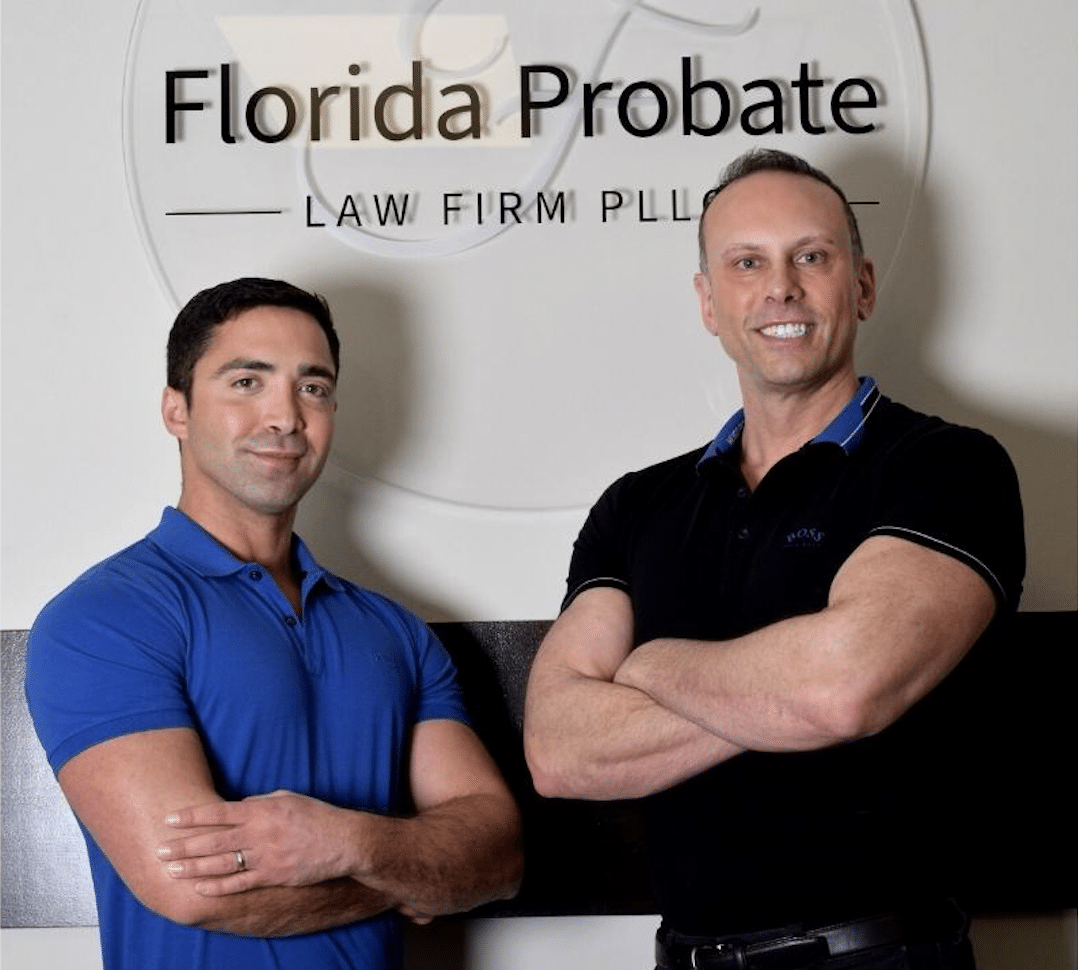Creditor Claims
After the death of a loved one, family members are usually dealing with a lot of emotions. During this time it’s easy for them to forget about, or to be overwhelmed by, the process of settling the deceased’s estate, especially if there are number of potential creditors or debts that may be looming. This is where working with an experienced and knowledgeable probate attorney can help.
The Florida Probate Firm has handled many estates which have been burdened with numerous creditor claims, as well as estates that are considered insolvent, meaning that the liabilities of the estate exceed the available assets. We work with families to preserve as much wealth as possible, and to ensure that the expenses of the administration are funded by estate assets rather being paid out of pocket by beneficiaries, whenever possible. There are a number of options available to protect assets from potential creditors such as:
- Homestead determination for real property;
- Exempt personal property according to FL statute;
- Objecting to creditor claims;
- Negotiating for reduction of claims directly with the creditor.

Notice to Creditors
During a formal probate administration, the probate court will appoint a personal representative to be in charge of the estate. The personal representative of the decedent’s estate is a fiduciary. He or she is charged with protecting the property of the beneficiaries – one of the highest standards of care known to the law. It is their responsibility to make sure the assets are preserved, safeguarded, and protected. But, not only do they owe a duty to the beneficiaries, they also owe duties to creditors of the estate.
The personal representative must notify potential creditors of the death of the decedent, so they have the opportunity to file a claim in the probate proceeding. The attorney on record for the estate will publish a notice to creditors in the local newspaper for two weeks, which designates the beginning of the 90 day creditor period. The attorney for the personal representative will also mail Notice to Creditors directly to any known creditors of the estate informing them of the deadline for filing their claims. Creditors have the longer of 30 days from receipt of mailed Notice to Creditors, or 3 months after the first date of publication of Notice to Creditors, in order to file a claim in the estate.
It is the creditor’s responsibility to file a claim with the court within the statute of limitations in order to seek reimbursement. If not, that creditor cannot look to the personal representative nor to the decedent’s children or heirs for payment.

Priority of Debts
Once a creditor claim has been filed, the personal representative must look over all debts and claims, determine which are legitimate, which should be objected to, and, where possible, negotiate a settlement. However, it is important to understand that the estate’s debts must be paid off based on order of priority established by Florida statute.
That said, there is an important distinction between the class, or category, that each debt or expense of the estate falls into. Estate expenses must be paid according to their order of priority, and all creditor claims or expenses of administration must be addressed before any distributions can be made to beneficiaries.
The Florida statute stipulating the order of priority associated with payment of creditor claims is as follows:
733.707 Order of payment of expenses and obligations.—
(1) The personal representative shall pay the expenses of the administration and obligations of the decedent’s estate in the following order:
- (a) Class 1.—Costs, expenses of administration, and compensation of personal representatives and their attorney’s fees and attorney’s fees awarded under s. 733.106(3).
- (b) Class 2.—Reasonable funeral, interment, and grave marker expenses, whether paid by a guardian, the personal representative, or any other person, not to exceed the aggregate of $6,000.
- (c) Class 3.—Debts and taxes with preference under federal law, claims pursuant to ss. 409.9101 and 414.28, and claims in favor of the state for unpaid court costs, fees, or fines.
- (d) Class 4.—Reasonable and necessary medical and hospital expenses of the last 60 days of the last illness of the decedent, including compensation of persons attending the decedent.
- (e) Class 5.—Family allowance.
- (f) Class 6.—Arrearage from court-ordered child support.
- (g) Class 7.—Debts acquired after death by the continuation of the decedent’s business, in accordance with s. 733.612(22), but only to the extent of the assets of that business.
- (h) Class 8.—All other claims, including those founded on judgments or decrees rendered against the decedent during the decedent’s lifetime, and any excess over the sums allowed in paragraphs (b) and (d).
Expenses directly associated with the administration, such as legal fees and filing fees, are considered class 1 creditors and get paid before any other type of expenses. The vast majority of debts accumulated by the decedent during life will be categorized as class 8 creditors, which for example would include liability associated with credit cards, loans, mortgages, etc.
It is very important for the personal representative to follow the order of priority in which these claims must be paid, and that he or she does not pay a subordinate creditor before a creditor with priority, or he or she could be held financially liable if the creditor with priority goes unpaid. In order to avoid any mistakes, its advisable to strictly follow the timetables stipulated by your attorney regarding the creditor period. The personal representative should wait until the expiration of the 90 day creditor period before assessing which claims must be paid, since he or she will only have a clear picture of all the debts once creditor period has expired. The personal representative also has one additional month after the expiration of the creditor period in which to object to claims. When a claim is objected to, the creditor will have 30 days from receceipt of the objection in which to respond to the objection by filing a civil suit against the estate to enforce the claim. If the claimant does not initiate the suit and does not respond to the objection within 30 days, the claim is considered barred and the personal representative can petition the court to grant an order striking the claim.
If the personal representative forgets to pay a creditor, or gives in to the pressure and distributes all estate assets too early, and claims against the estate arise later on; he or she could be held personally liable to pay those creditors. Similarly, if the personal representative distributes estate assets without making appropriate tax payments or establishing sufficient reserves for taxes, he or she will be personally liable for any unpaid tax.
The Insolvent Estate Process
Before paying any bills (other than the funeral expenses), distributing any property, applying for death benefits, or making payments to beneficiaries, the personal representative must determine, with the help of an attorney or financial advisor, whether or not the estate is likely to be insolvent.
If the estate is insolvent, meaning that its debts are greater than the assets available to settle them, the personal representative should pay nothing (other than the cost of a reasonable funeral) from the estate until all claims, bills, and demands have come in. Each class of creditor will be satisfied in full, one class at a time, working down in the order of priority from class 1. Once you reach a class of creditors in which there is not enough funds to pay off all claimants within the class, the remaining creditors within that class will then be paid on a pro-rata basis based on their proportionate share of the debt owed by the decedent until all the assets in the estate are exhausted.
It is, therefore, very important that the personal representative consider all of the estate’s assets and liabilities before making any distribution to any beneficiary or creditor. If the estate is insolvent and the personal representative pay bills that are not entitled to priority so that priority creditors don’t get paid, he or she can be held personally liable to pay those priority creditors. That means having to reach into his or her own pocket to make up the amount they improperly paid to the wrong creditor.
Why Retain the Services of an Experienced Florida Estate Planning Attorney?
By law, creditors get paid before any beneficiary can take what is left for an inheritance. If there is not enough money in your estate, it is possible that the court will direct all the money to your creditors and leave nothing for your heirs to inherit.
The best way to ensure that your creditor’s claims don’t take away from what you hoped to leave for your loved ones is to plan ahead with the help of a qualified estate planning attorney to ensure that there is enough in your estate to pay your debts.
An experienced estate planning attorney can help you and your family utilize estate planning tools and resources, such as life insurance, to simplify the process and protect your legacy.
Creditors Claims FAQs
The clerks will mail any creditor claims directly to the attorney representing the personal representative of the estate. The personal representative is in charge of reviewing such claims in order to determine if they are legitimate and how to respond. The personal representative can request supporting documentation from the claimant to confirm the amount owed, can negotiate with the creditor for some type of settlement, or can potentially object to the claim. If the claim is objected to, the creditor will have 30 days from the receipt of the objection in order to initiate a separate civil suit against the estate in order to enforce the claim. If the claimant does not initiate a suit within the 30 day time period, the claim is barred. It’s prudent for the personal representative to obtain an order striking the claim once barred.
In Florida, during a formal probate administration all estates are required to publish a notice to creditors in the local newspaper which signifies the beginning of a 90 day creditor period. During this three month period any potential creditors of the decedent can file claims for reimbursement. Each claim will be filed on the docket and a copy will be provided to the personal representative either by a clerk, or by the attorney on record for the estate. It is the personal representative’s responsibility to review each claim in order to substantiate if it is valid and/or if sufficient documentation has been provided. The personal representative will then have an opportunity to pay the claim, object to the claim or negotiate directly with the claimant for a reduced settlement amount. Any objections will be served on the claimant, providing them notice that they have 30 days to initiate a civil lawsuit against the estate to enforce their claim, otherwise the claim will be barred or stricken. The personal representative and the claimant also have the option of entering into a joint stipulation to freeze the 30 day timetable for filing an independent lawsuit until more information is gathered. Often these stipulations are utilized in order to provide the personal representative with additional time to collect assets, as well as to ensure there are no additional creditors waiting to file claims before the expiration of the creditor period. These stipulations are also helpful in estates where liquidity or insolvency are potential concerns. Florida Statute 733.707, provided below, outlines the categories that creditors must be organized into, as well as outlines the order or priority in which each type of claim must be paid. All highest level claims must be paid first, before moving on to pay lower category claims.
Upon the expiration of the 90 day creditor period, the personal representative should have a complete picture of which claimants are potentially owed money, as well as what assets are available to satisfy those claims. The judge does not review any claim or make a determination as to the validity of the claim unless the claimant brings an adversarial proceeding against the estate. An experienced probate attorney can provide guidance during the probate process, including how best to address any claims that may be file.
733.707 Order of payment of expenses and obligations.—
(1) The personal representative shall pay the expenses of the administration and obligations of the decedent’s estate in the following order: (a) Class 1.—Costs, expenses of administration, and compensation of personal representatives and their attorneys fees and attorney’s fees awarded under s. 733.106(3). (b) Class 2.—Reasonable funeral, interment, and grave marker expenses, whether paid by a guardian, the personal representative, or any other person, not to exceed the aggregate of $6,000. (c) Class 3.—Debts and taxes with preference under federal law, claims pursuant to ss.409.9101 and 414.28, and claims in favor of the state for unpaid court costs, fees, or fines. (d) Class 4.—Reasonable and necessary medical and hospital expenses of the last 60 days of the last illness of the decedent, including compensation of persons attending the decedent. (e) Class 5.—Family allowance. (f) Class 6.—Arrearage from court-ordered child support. (g) Class 7.—Debts acquired after death by the continuation of the decedent’s business, in accordance with s. 733.612(22), but only to the extent of the assets of that business. (h) Class 8.—All other claims, including those founded on judgments or decrees rendered against the decedent during the decedent’s lifetime, and any excess over the sums allowed in paragraphs (b) and (d).

Florida Insolvent Estate Attorney
If you have been called on to act as the personal representative of an estate in Florida, you should consult with an experienced Florida insolvent estate attorney before you do anything, particularly pay any creditors. An experienced attorney can help you determine if the estate is insolvent and if so, let you know which debts to pay and when. This will, in turn, prevent you from making an already bad situation worse and from making payments that will come back to haunt you. If would like to learn more, contact an experienced Florida estate planning attorney today.
Give the Florida Probate Firm a call at (561) 210-5500 to arrange a free consultation. We look forward to serving you.

